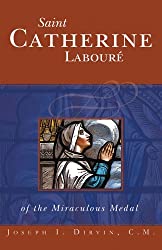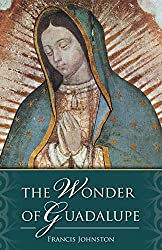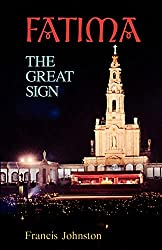
CJS.Org Introductory Remarks:
Here we continue with the sixth part of our account taken from Bernard St John’s out-of-print 1904 book, The Blessed Virgin in the Nineteenth Century: Apparitions, Revelations, Graces.
This old account is serialised in ten parts at this website:
- Part I: The First Apparitions
- Part II: The Spring of Miracles is Discovered
- Part III: “Tell the Priests that a Chapel Must be Built …”
- Part IV: “I Wish People to Come Here in Procession.”
- Part V: The Miracles of Cures and Healing Begin …
- Part VI: She Said in a Voice that Trembled a Little: “I am the Immaculate Conception.”
- Part VII: The Miracle of the Lighted Candle
- Part VIII: The Last Apparition
- Part IX: After the Apparitions
- Part X: The Later Years
We will also note that we think Bernard St John’s text is an unusually fine book, well-written and clearly well-researched, drawing on many sources – including the author’s own first-hand experience of Nineteenth Century France. We would like in fact to republish the book ourselves (with some additional commentary).
In the meantime, in addition to this series on Lourdes, the interested reader can also find extracts from Bernard St John on Our Lady of the Miraculous Medal, as well as La Salette (in a series starting here) and Our Lady of Pontmain (in a series starting here).
From Bernard St John:
Three weeks had elapsed since the last Apparition. The day of the Annunciation dawned bright and clear. More persons than usual had gone to the Grotto that morning, but little imagining what was in store for them.
Bernadette, by an intuitive sense that never failed her on these occasions, knew that she was about to see the Apparition. When she reached Massabiello at an early hour, a number of persons were assembled there before her.
These she hardly noticed; but what she did notice was that the aperture in the rock was already alight with its golden glow, and that within the aureole the Apparition was standing.
Alluding afterwards to her first impression on gazing at the illumined niche, she said; “She was there, calm and smiling, and looking down on the crowd as a fond mother looks at her children.”
The current of communication between the peasant girl on her knees and the Heavenly visitant began. When Bernadette, as she afterwards described it, had said all that was in her heart to say, she began saying her Rosary.
Meanwhile, spectators fed their faith and enthusiasm by gazing at her countenance, which was for the time ideally beautiful.
People were hoping that a message was being conveyed: and a message was being conveyed one that was to illumine with fresh radiance the dogma proclaimed by the Catholic Church four years before.
In order that the reader may well understand the scene that was going on, it may be well to forestall Bernadette in the explanation she afterwards gave to the crowd.
It may be remembered that in the course of the previous Apparitions she had, more than once, asked the celestial visitant to say who she was.
This had been at the instigation of others, because in her child’s heart she had never doubted as to the personality of her who conversed with her from the rock.
For answer she had never received other than a gracious movement of the head and a smile.
On this day of the Annunciation, praying, rosary in hand, and looking up, she tells us that suddenly she felt impelled to again ask the Apparition to say who she was.
Conquering her hesitation, she did so, and received the same reply, namely, a smile and a gracious movement of the head.
She made the request a second time, and received the same answer.
Still irresistibly impelled, as she says, she entreated a third time, and with joined hands and with all the intensity of which she was able.
The answer came. It must be given in the child’s own words:
“I had asked a third time,” says Bernadette; “She seemed to become more serious and to wear a look of deeper humility.
Then she joined her hands and raised them high against her breast.
Then she cast her eyes upwards; then unfolding her hands and letting them slowly fall, and bending towards me, she said in a voice that trembled a little: “I am the Immaculate Conception.”
Bernadette’s voice trembled also as she repeated the words.
More than this, in repeating them, she imitated, though perhaps unconsciously, the attitude and gesture of the Apparition.
Those who heard fell on their knees.
A moment or two afterwards their feelings found expression in littering as with one voice: “O Mary, conceived without sin, pray for us who have recourse to thee!”
A wave of strong emotion passed over the crowd. Numbers kissed the rock whence had proceeded the words: “I am the Immaculate Conception!”
The news sped like lightning that the Apparition had at length proclaimed herself, and that it was indeed Mary the Immaculate who had appeared at the Lourdes Grotto.
Bernadette lost no time in letting Abbé Peyramale know the message she had received.
M. Henri Lasserre tells us in his book, Notre-Dame de Lourdes, that on her way to the priest’s house, she kept repeating to herself the words: “I am the Immaculate Conception,” in order, as she said, not to forget them.
It is worth mentioning that she did not in the least know what these words meant.
Later on in the same day she went to see M. Estrade and his sister.
The former in his book Les Apparitions de Lourdes, tells us that an angel’s visit would not have been more welcome.
She again described the scene of the morning, and tried with ineffable sweetness, even shedding tears the while, to convey to her hearers something of the impression that had been left on her own innocent mind.
It was seeing as well as hearing Bernadette as she repeated the words, “I am the Immaculate Conception” that gave some idea of the vision of Heaven that had been vouchsafed her.
Later on, the sculptor Fabisch saw and heard her as she uttered the words and reproduced the look and attitude of the Apparition.
“It was a revelation to me,” he said; “never shall I forget the child’s look. My statue was composed at once. Each time,” he continues, “I asked for the same pose, her countenance became illumined and transfigured by the same expression.
When the artist’s work was done, and he had, as he thought, realized his ideal, Bernadette was confronted with the marble statue.
“It is beautiful!” she exclaimed; “but oh, not like Her! There is as much difference between the two as between day and night.”
To be Continued …
End of Part Six—To Navigate this Series:
Foreword for Monarchy by Roger Buck
Buying Books at Amazon Through These Links Gives Us a Commission. This Supports Our Apostolate. Thank You if You Can Help Us Like This!








